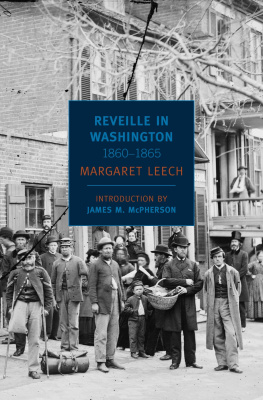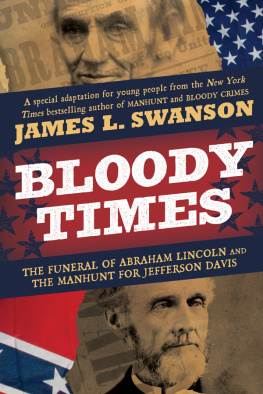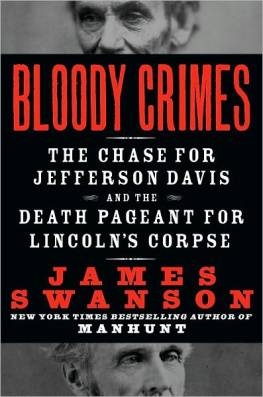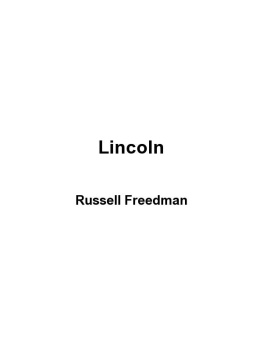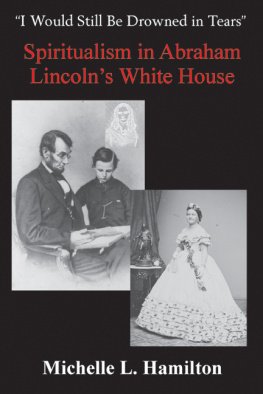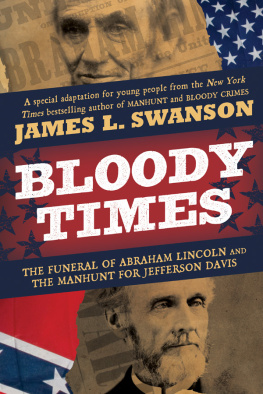MARGARET LEECH (18931974) was an American novelist, biographer, and historian. She was the first woman to win the Pulitzer Prize for History and one of only two people to win it twice, first in 1942 for Reveille in Washington and again in 1960 for In the Days of McKinley (for which she also won the Bancroft Prize). Leech was born in Newburgh, New York, and graduated from Vassar College in 1915. She then moved to New York City, where she found work in the advertising and publicity departments of Cond Nast. Following World War I, she served on the American Committee for Devastated France and took up journalism and fiction, eventually publishing three novels, The Back of the Book (1924), Tin Wedding (1926), and The Feathered Nest (1928), before turning to history. A member of the celebrated Algonquin Round Table, where she was known for her sharp tongue, she collaborated with Heywood Broun on a biography of Anthony Comstock (1927) and with Beatrice Kaufman on a play, Divided by Three (1934). In 1928 Leech married Ralph Pulitzer, editor and publisher of The New York World. At the time of her death Leech had begun work on a new history, The Garfield Orbit. Completed by Harry J. Brown, the book appeared in 1978.
JAMES M. McPHERSON was awarded the Pulitzer Prize in 1989 for Battle Cry of Freedom: The Civil War Era. Among his other books are For Cause and Comrades, Drawn with the Sword, What They Fought For, Gettysburg, and Fields of Fury. A professor at Princeton University, he lives in Princeton, New Jersey.
REVEILLE IN WASHINGTON
18601865
MARGARET LEECH
Introduction by
JAMES M. McPHERSON
NEW YORK REVIEW BOOKS

New York
Contents
Introduction
IN HIS BOOK Washington Goes to War, David Brinkley describes how World War II changed the American capital from a rather provincial city preoccupied with the New Deal and emptied by the annual summer exodus to the nerve center of an unprecedented war effort and headquarters of the postwar non-Communist world. In the process Washington became, in John F. Kennedys phrase, a city of Northern charm and Southern efficiency.
Other wars have also had a major impact on Washington; during the War of 1812, for example, the British burned the infant capital. But no event, not even World War II, more profoundly affected the capital than the Civil War. This is the central theme of Reveille in Washington. The conflict of 18611865 transformed a sleepy Southern village from the seat of government for a decentralized confederation of states into the powerful capital of a reunited nation purified of slavery and state sovereignty by blood and fire.
Published, by ironic coincidence, on the eve of American entry into World War II, Reveille in Washington chronicles that earlier all-out war effort directed by embattled habitants of the White House and Capitol Hill. Winner of the Pulitzer Prize in 1942, Margaret Leechs book has become a classic in the rich field of Civil War studies. And for good reason. Like all classics, it is a book that can be read and appreciated at several levels. It is, first and foremost, a beautifully written storywith a plot full of crises, surprises, twists and turns, comedy and tragedy, and the bitter-sweet climax of Union victory followed immediately by the assassination of Abraham Lincoln. It is a story with a heroic and tragic figure in Lincoln, a genuine villain in John Wilkes Booth, a would-be messiah in George B. McClellan, the beguiling rebel spy Rose ONeal Greenhow, Mary Lincoln, who evokes pathos, and giants of American culture who play bit parts here: poet Walt Whitman and novelist Louisa May Alcott nursing wounded soldiers in army hospitals; Patent Office clerk Clara Barton creating a one-woman medical corps and sallying forth to succor the wounded on battlefields near Washington; Andrew Carnegie working to organize transportation and telegraph services into the capital.
The reveille of the title has multiple meanings that suggest some of the levels of the book. Reveille is first an awakening from peace to war. Not only did the dusty, somnolent offices of the War Department come alive as the bureaucratic headquarters of a large military machine, but vast multitudes of soldiers crowded into Washington itself and poured into the surrounding hills and valleys, which became training camps and staging areas for the numerous On to Richmond campaigns. The awakening of Washington to the realities of war also came in the form of alarums and panics caused by enemy threats and supposed threats to the capital. This martial activity parades in all its splendor and confusing disorder through these pages.
Another meaning of reveille centers on the emergence of the capital from the symbol to the true substance of sovereignty. Americas awakening as a modern nation came during the Civil War. Before 1861 many Americans looked upon their Union as a voluntary association of states that could assert their separate sovereignty whenever they wanted to. But the events of 18611865 upended this notion and made Washington the sovereign capital in fact as well as name. Before the war the words United States were generally understood as a plural noun: The United States are a republic. After 1865 United States became a singular noun. The North went to war to preserve the Union; it ended by creating a nation. In Lincolns first inaugural address he used the word Union twenty times and never said the word nation. In his first message to Congress, on July 4, 1861, he referred to the Union thirty-two times and to the nation three times. But more than two years later, at Gettysburg, Lincoln did not refer to the Union at all but spoke of the nation five times as he invoked a new birth of freedom to forge a new American nationalism. And in his second inaugural address, looking back over four years of war, Lincoln described one side as seeking to dissolve the Union in 1861 and the other as accepting the challenge of war to sustain the nation. During the war the old federal republic in which the government in Washington rarely touched the average citizen except through the Post Office gave way to a national state that taxed its people directly, created an internal revenue bureau to collect these taxes, drafted men into the army, expanded the jurisdiction of federal courts, created a national greenback currency, and launched a national banking system.
In this book Margaret Leech deftly molds the expansion and refurbishing of the Capitol into a master symbol for the awakening of American nationalism. In 1861 the new Capitol dome was unfinished, with its gaping roof open to the sky. In 1865, as the Union neared victory, the dome neared completion. By the end of the war the new dome was in place, surmounted by the triumphant statue of Armed Freedom standing at rest, her sword sheathed.
In another sense reveille marks the awakening of Washington from Southern to Northern domination, from sectionalism to nationalism, from slavery to freedom. Washington in 1861 was a Southern community. The District of Columbia was surrounded by slave states, and slavery existed in the capital itself. Although the citys flourishing slave market had been forced across the river to Alexandria by legislation that was part of the Compromise of 1850, the buying and selling of human beings was still going on in Washington when Lincoln was inaugurated on March 4, 1861. But that inauguration was an augury of change. In this first administration of the exclusively Northern Republican party, Yankee officeholders invaded Washington. And as these Republicans entered the capital on trains from the north, Southerners left on trains headed south, joining their home states in secession. Washington became a city of Northern charm and, for a time at least, Northern efficiency. One of the first acts of the new Republican majority was the abolition of slavery in the District. In this as in many other respects, Washington was the nation in microcosm. Abolition of slavery in the capital was followed three and a half years later by the Thirteenth Amendment, abolishing it throughout the United States.
Next page
